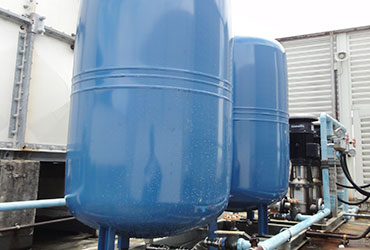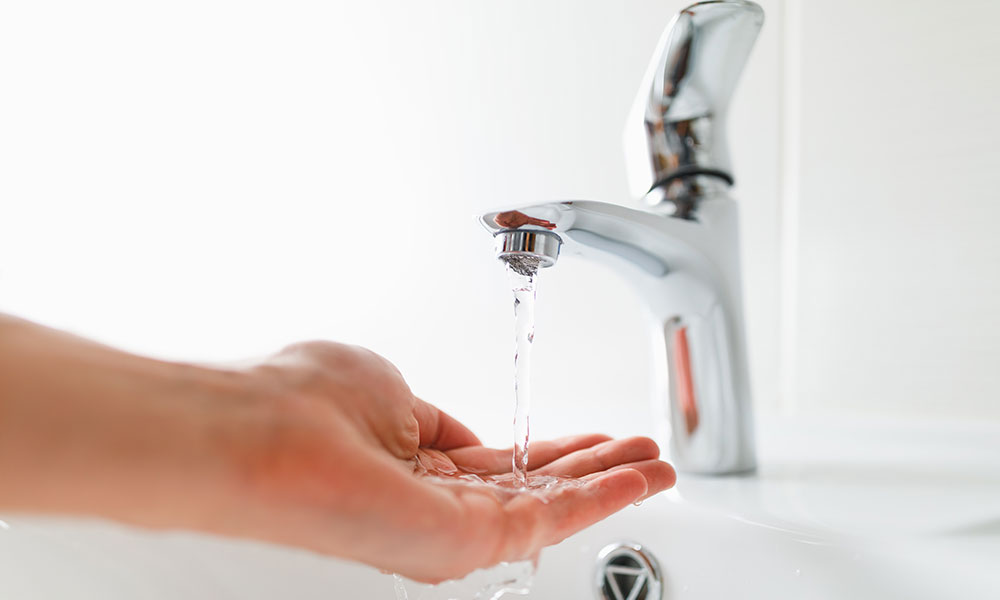Quick Remedies for Decreased Water Pressure in Your Home
Quick Remedies for Decreased Water Pressure in Your Home
Blog Article
Were you on the lookout for answers around 9 Reasons for Low Water Pressure in Your House?

Low water pressure in your house can be an aggravating trouble, affecting everything from showering to cleaning meals. If you're experiencing weak water circulation, there are numerous possible reasons and remedies to explore. In this overview, we'll go over typical reasons for low water pressure and sensible steps to address the problem successfully.
Introduction to Low Tide Stress
Low tide stress occurs when the circulation of water from your taps, showers, and other components is weak than typical. This can make everyday tasks a lot more tough and less reliable. Recognizing the causes of low water stress is critical to finding the ideal solution.
Common Reasons For Low Water Stress
Faulty Pressure Regulators
Stress regulatory authorities are responsible for keeping regular water pressure in your house. If they malfunction, it can cause low tide pressure or uneven flow throughout your home.
Local Water System Issues
Occasionally, the issue exists outside your home. Community supply of water concerns, such as main line leaks or maintenance work, can momentarily reduce water pressure in your area.
Pipe Obstructions
Gradually, pipelines can come to be clogged with mineral deposits, sediment, or debris, limiting the circulation of water. This is an usual concern in older homes with galvanized steel pipelines.
Rust
Deterioration within pipelines can cause leakages and decreased water pressure. Corrosion accumulation can constrict water circulation, particularly in maturing plumbing systems.
How to Identify Low Tide Stress
Checking Pipelines
Check noticeable pipes for indications of leaks, deterioration, or obstructions. Pay attention to any type of uncommon noises, such as knocking or rattling pipelines, which might suggest concerns within the plumbing system.
Consulting with a Plumber
If you're not able to determine the root cause of low tide stress, take into consideration employing a specialist plumber to conduct a detailed assessment. They can determine underlying problems and suggest suitable solutions.
Inspecting Taps and Fixtures
Beginning by examining the water stress at various taps and fixtures throughout your home. If the concern is separated to particular locations, it might show localized troubles.
Do It Yourself Solutions to Fix Low Water Pressure
Flushing Hot Water Heater
Sediment build-up in the hot water heater can restrict circulation and minimize effectiveness. Purging the tank occasionally assists get rid of sediment and preserve ideal efficiency.
Checking Stress Regulatory Authority
Make sure that the stress regulator is operating correctly. Changing or replacing the regulatory authority can aid restore correct water stress throughout your home.
Cleansing Aerators and Showerheads
Mineral deposits can collect in aerators and showerheads, lowering water flow. Get rid of and cleanse these parts consistently to improve water stress.
Cleaning Clogs in Piping
For small clogs, try using a plumbing snake or chemical drainpipe cleaner to clear blockages in pipes. Be cautious when making use of chemicals and follow safety guidelines.
When to Call a Specialist Plumber
If do it yourself efforts stop working to resolve the problem or if you suspect substantial plumbing issues, it's finest to seek help from a certified plumber. They have the competence and devices to resolve complicated problems safely and efficiently.
Preventive Measures to Preserve Water Pressure
Installing a Pressure Booster
Take into consideration installing a stress booster pump to improve water stress in locations with consistently reduced circulation. This can be particularly helpful for multi-story homes or residential or commercial properties with high-demand components.
Monitoring Water Usage
Bear in mind water use habits and prevent ill-using the plumbing system. Basic changes, such as incredible showers and washing tons, can aid preserve adequate water stress.
Regular Maintenance
Schedule regular maintenance for your plumbing system to avoid concerns such as deterioration, leakages, and clogs. Attending to minor troubles early can assist avoid even more substantial repairs later.
Conclusion
Managing low water pressure can be irritating, however determining the underlying reasons and executing appropriate remedies can restore optimal flow throughout your home. Whether it's cleansing aerators, inspecting pipes, or consulting with a plumber, taking aggressive steps can make certain a constant supply of water for your day-to-day needs.
FOUR WAYS TO FIX LOW WATER PRESSURE NOW
Turning on a shower or faucet only to find the water comes out in a sad, slow drizzle is never a good feeling. How exactly are you supposed to wash a pan or take a quick shower when it takes 10 minutes just to rinse off a little soap? The good news is that when your water pressure is bad, there's always a cause: typically one that can be easily fixed. Here are some of the most common causes of low pressure and what you can do to fix the issue:
DEBRIS AND MINERAL DEPOSIT BUILDUPS
If you notice low water pressure from just one or two of the fixtures in your house, the problem likely has to do with debris buildup. Water is full of minerals and other debris, all of which can accumulate in your pipes and on your fixtures. This can cause a blockage that affects how much water flows through. To fix this, try filling a small plastic bag with white vinegar, and use a rubber band to hang it around your showerhead or faucet. Let the head of the fixture soak for a few hours, and the vinegar should loosen the deposits.
WATER LEAKS
Leaks are another common cause of low water pressure. If water is flowing out of your plumbing through a hole or crack before it can reach your fixture, the pressure coming out of the faucet or showerhead will be lower. A plumbing professional is your best bet for finding and repairing a leak in your water supply pipes.
Leaks are another common cause of low water pressure. If water is flowing out of your plumbing through a hole or crack before it can reach your fixture, the pressure coming out of the faucet or showerhead will be lower. A plumbing professional is your best bet for finding and repairing a leak in your water supply pipes.
A VALVE ISSUE
If you have low water pressure throughout your home, check your main shut-off valve to make sure it's completely open. You may also want to see if there's a pressure-reducing valve installed. If there is, have a plumber help you adjust the settings to get the pressure you're looking for.
OTHERS USING WATER
Believe it or not, your low water pressure could be caused by your neighbors. If you notice low pressure at certain times of day, it may be because you and the people living next to you have similar schedules - when everyone is showering at the same time, the pressure will be lower in every home. Low pressure throughout the neighborhood may also be caused by an issue with your municipal water supply. If that's the case, call the supplier to see if they're working on the issue.
https://www.rotorooter.com/blog/water-leaking/low-water-pressure-fixes/

As a devoted person who reads about , I assumed sharing that piece of writing was a smart idea. Kindly take a moment to promote this post if you liked it. We value your readership.
Additional Information Report this page